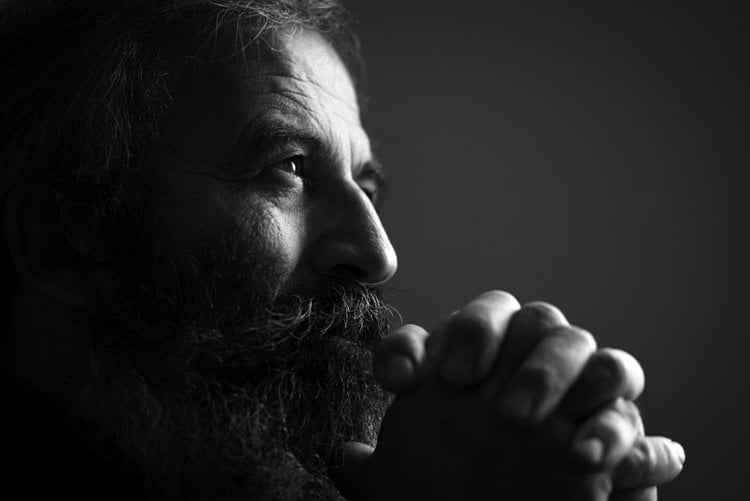Summary: A new study addresses whether religiosity is associated with lower intelligence. Researchers report religious people appear to be predisposed to rely more heavily on intuition when it comes to decision making, over reasoning. They conclude cognitive training could allow religious minded people to maintain their beliefs without over-relying on intuition when making decisions.
Source: BPS.
Of course, there are examples of extremely intelligent individuals with strong religious convictions. But various studies have found that, on average, belief in God is associated with lower scores on IQ tests. “It is well established that religiosity correlates inversely with intelligence,” note Richard Daws and Adam Hampshire at Imperial College London, in a new paper published in Frontiers in Psychology, which seeks to explore why.
It’s a question with some urgency – the proportion of people with a religious belief is growing: by 2050, if current trends continue, people who say they are not religious will make up only 13 per cent of the global population. Based on the low-IQ-religiosity link, it could be argued that humanity is on course to become collectively less smart.
One suggestion is that perhaps religious people tend to rely more on intuition. So, rather than having impaired general intelligence, they might be comparatively poor only on tasks in which intuition and logic come into conflict – and this might explain the lower overall IQ test results.
To investigate, Daws and Hampshire surveyed more than 63,000 people online, and had them complete a 30-minute set of 12 cognitive tasks that measured planning, reasoning, attention and working memory. The participants also indicated whether they were religious, agnostic or atheist.
As predicted, the atheists performed better overall than the religious participants, even after controlling for demographic factors like age and education. Agnostics tended to place between atheists and believers on all tasks. In fact, strength of religious conviction correlated with poorer cognitive performance. However, while the religious respondents performed worse overall on tasks that required reasoning, there were only very small differences in working memory.
Also, some of the reasoning tasks, such as an extra-hard version of the Stroop Task known as “colour-word remapping”, had been designed to create maximum conflict between an intuitive response and a logical one, and the biggest group differences emerged on these tasks, consistent with the idea that religious people rely more on their intuition. In contrast, for a complex reasoning task – “deductive reasoning” – for which there were no obviously intuitive answers, there was much less of a group difference.

Daws and Hampshire concluded: “These findings provide evidence in support of the hypothesis that the religiosity effect relates to conflict [between reasoning and intuition] as opposed to reasoning ability or intelligence more generally.”
If, as this work suggests, religious belief predisposes people to rely more heavily on intuition in decision-making – and the stronger their belief, the more pronounced the impact – how much of a difference does this make to actual achievement in the real world? At the moment, there’s no data on this. But in theory, perhaps cognitive training could allow religious people to maintain their beliefs without over-relying on intuition when it conflicts with logic in day to day decision-making.
Source: Emma Young – BPS
Publisher: Organized by NeuroscienceNews.com.
Image Source: NeuroscienceNews.com image is adapted from the BPS news release.
Original Research: Open access research in BPS in Psychology.
doi:10.3389/fpsyg.2017.02191
Edit: A previous version of the summary written by Victoria D. had numerous errors.
[cbtabs][cbtab title=”MLA”]BPS “Are Religious People Really, On Average, Less Smart than Atheists?.” NeuroscienceNews. NeuroscienceNews, 29 January 2018.
<https://neurosciencenews.com/religion-atheism-intelligence-8391/>.[/cbtab][cbtab title=”APA”]BPS (2018, January 29). Are Religious People Really, On Average, Less Smart than Atheists?. NeuroscienceNews. Retrieved January 29, 2018 from https://neurosciencenews.com/religion-atheism-intelligence-8391/[/cbtab][cbtab title=”Chicago”]BPS “Are Religious People Really, On Average, Less Smart than Atheists?.” https://neurosciencenews.com/religion-atheism-intelligence-8391/ (accessed January 29, 2018).[/cbtab][/cbtabs]
Abstract
The Negative Relationship between Reasoning and Religiosity Is Underpinned by a Bias for Intuitive Responses Specifically When Intuition and Logic Are in Conflict
It is well established that religiosity correlates inversely with intelligence. A prominent hypothesis states that this correlation reflects behavioral biases toward intuitive problem solving, which causes errors when intuition conflicts with reasoning. We tested predictions of this hypothesis by analyzing data from two large-scale Internet-cohort studies (combined N = 63,235). We report that atheists surpass religious individuals in terms of reasoning but not working-memory performance. The religiosity effect is robust across sociodemographic factors including age, education and country of origin. It varies significantly across religions and this co-occurs with substantial cross-group differences in religious dogmatism. Critically, the religiosity effect is strongest for tasks that explicitly manipulate conflict; more specifically, atheists outperform the most dogmatic religious group by a substantial margin (0.6 standard deviations) during a color-word conflict task but not during a challenging matrix-reasoning task. These results support the hypothesis that behavioral biases rather than impaired general intelligence underlie the religiosity effect.







